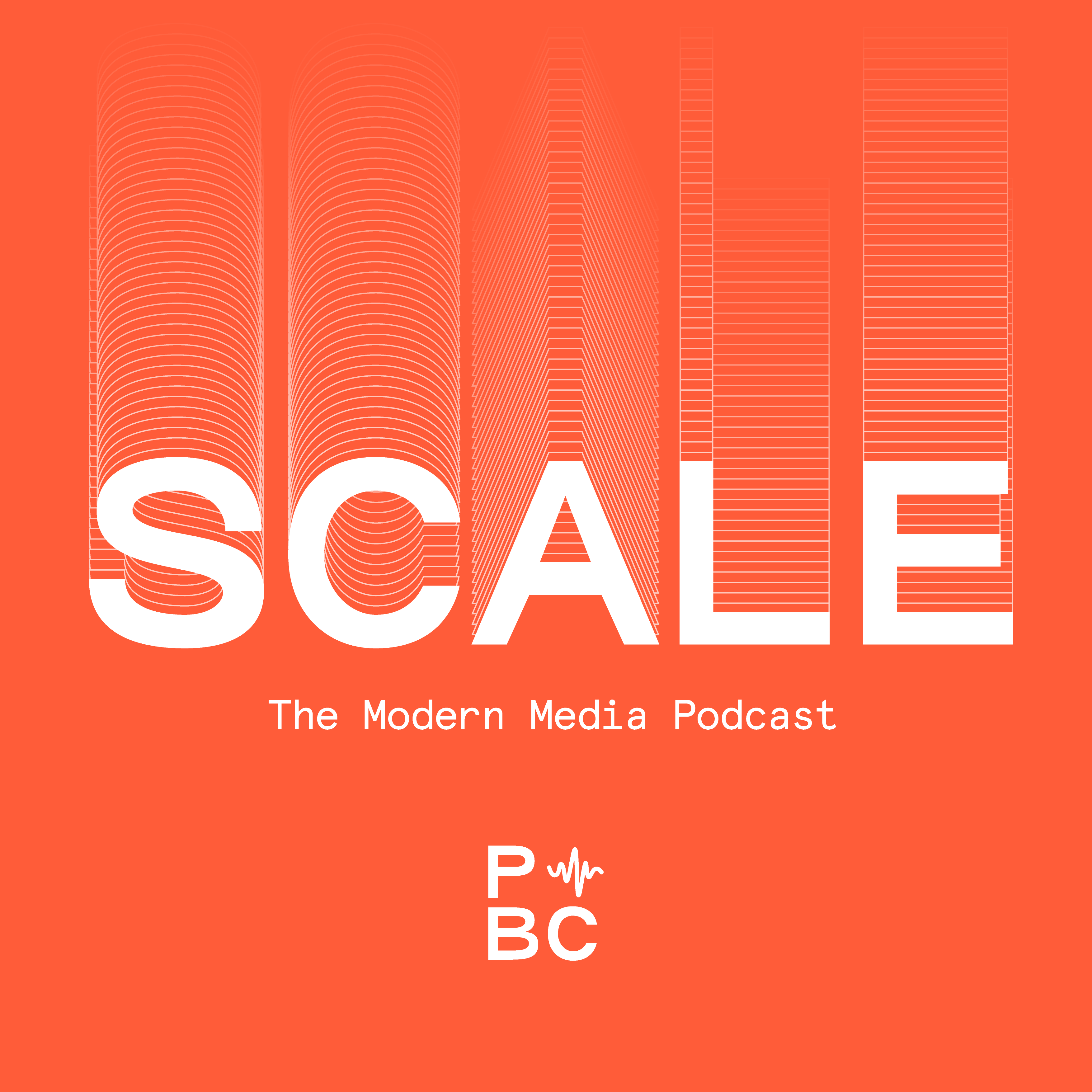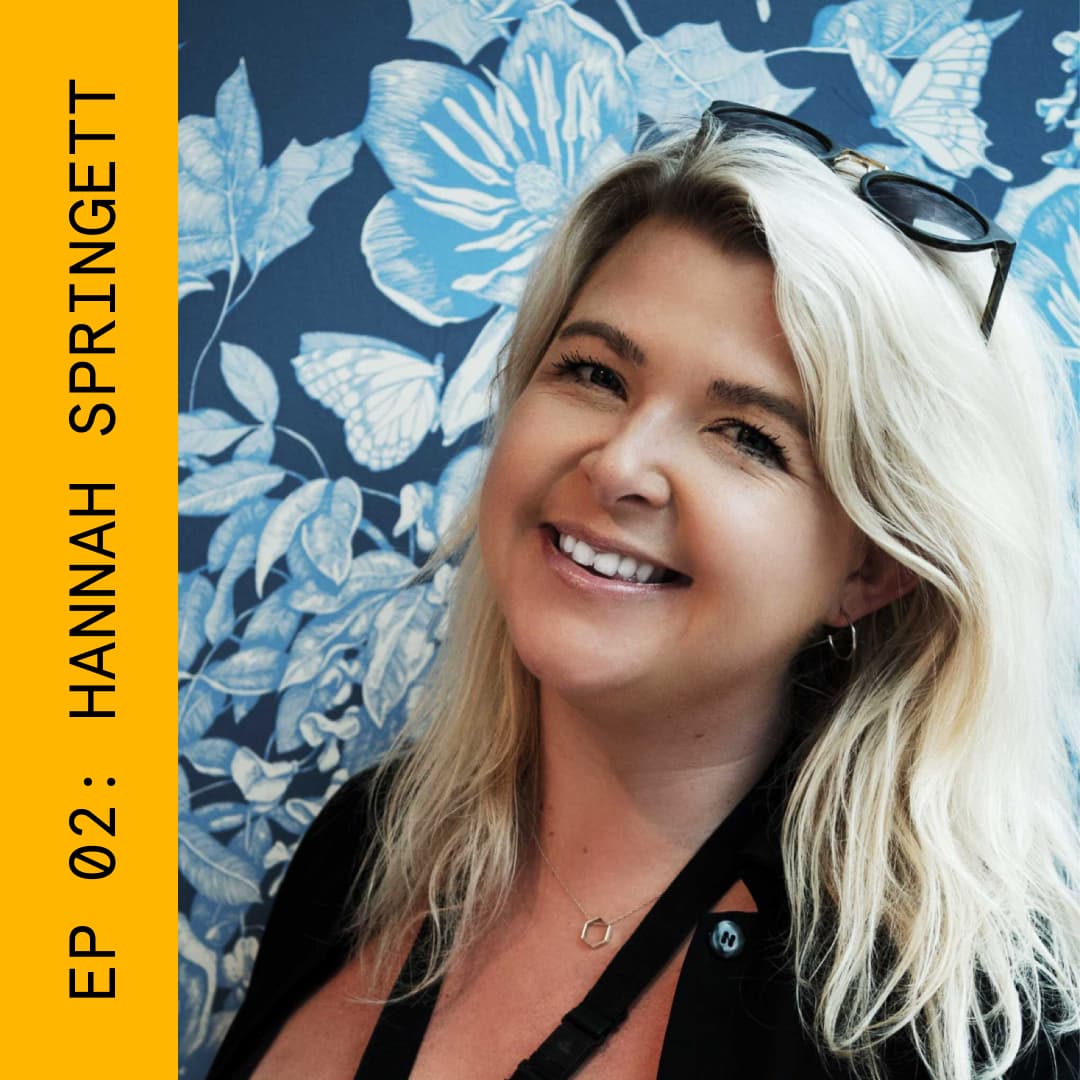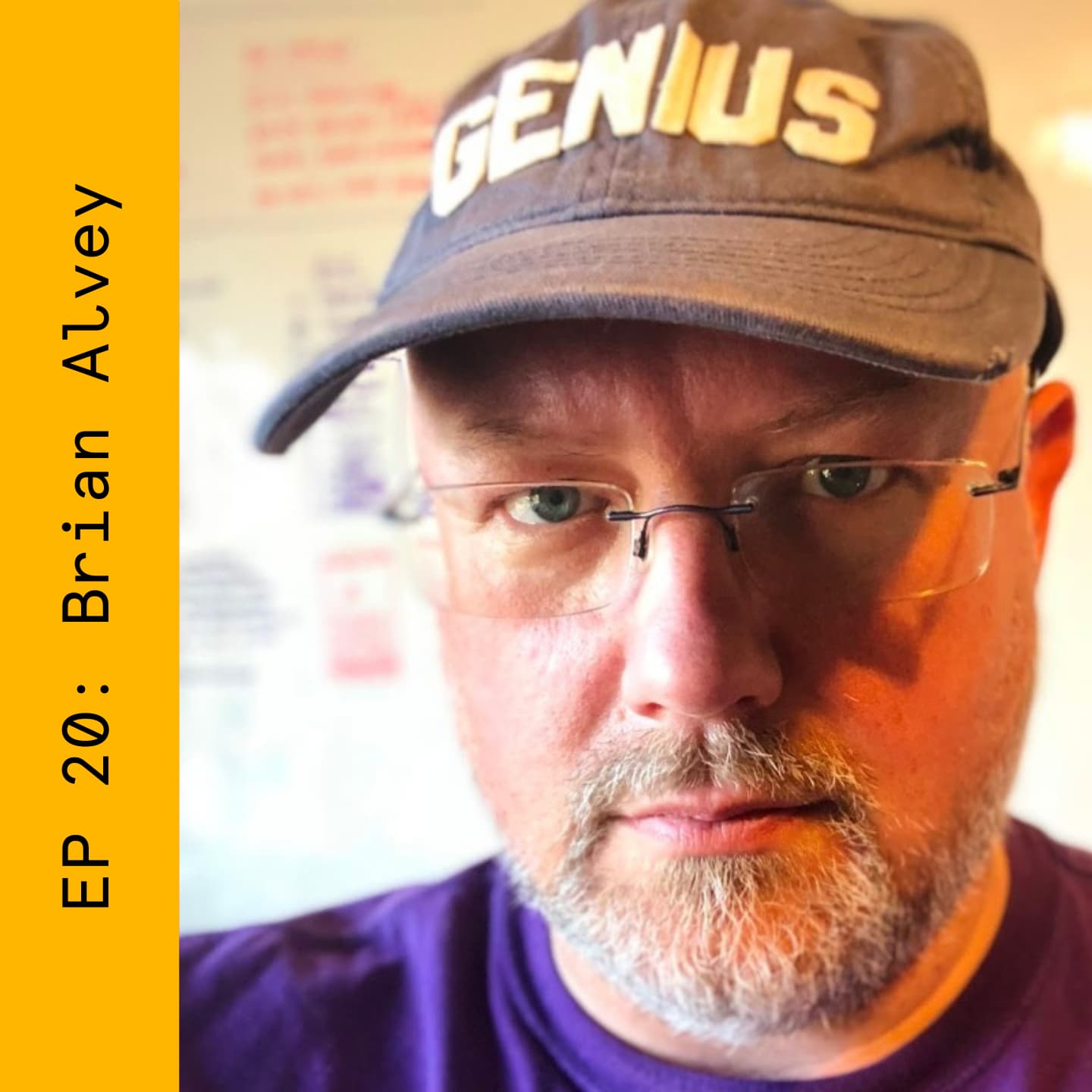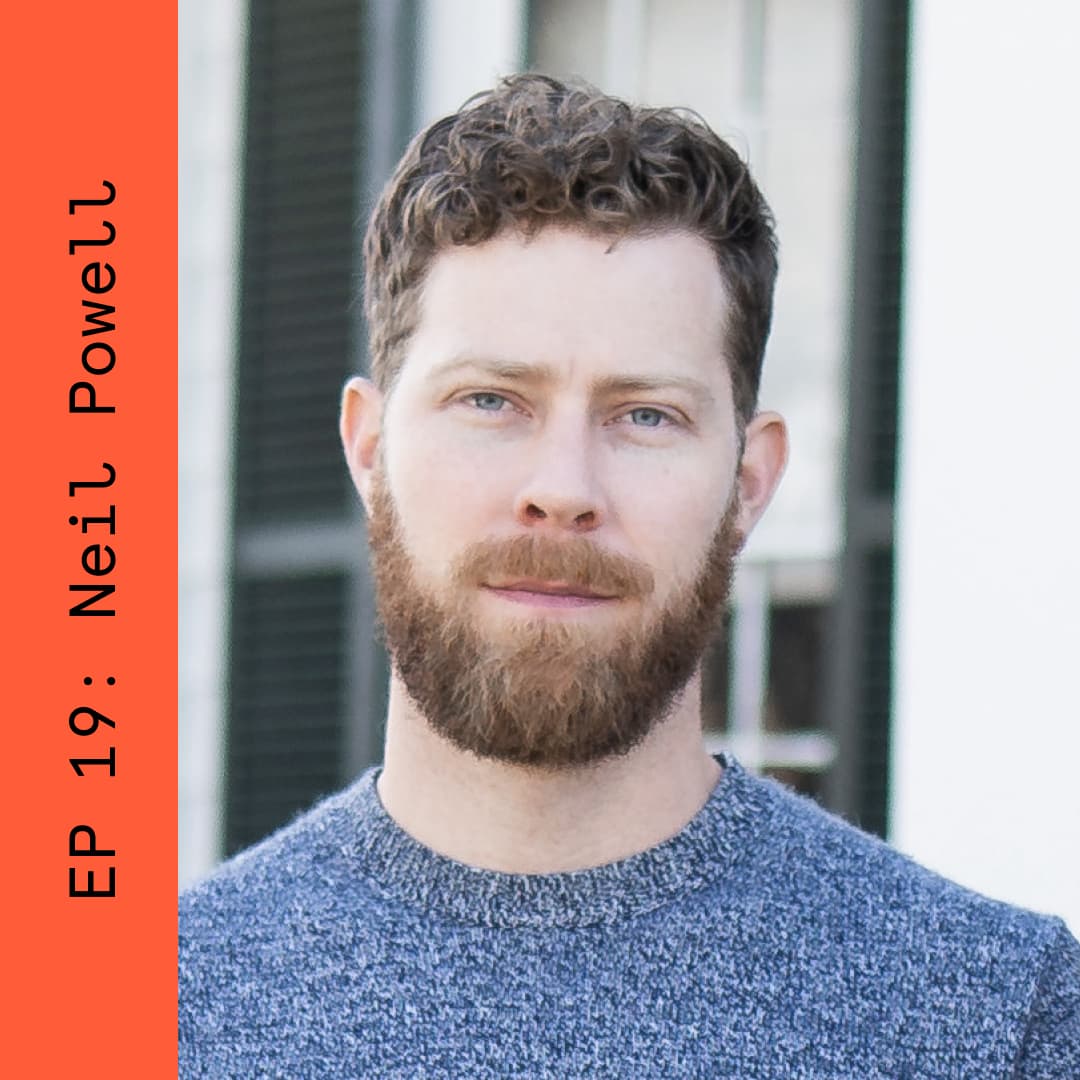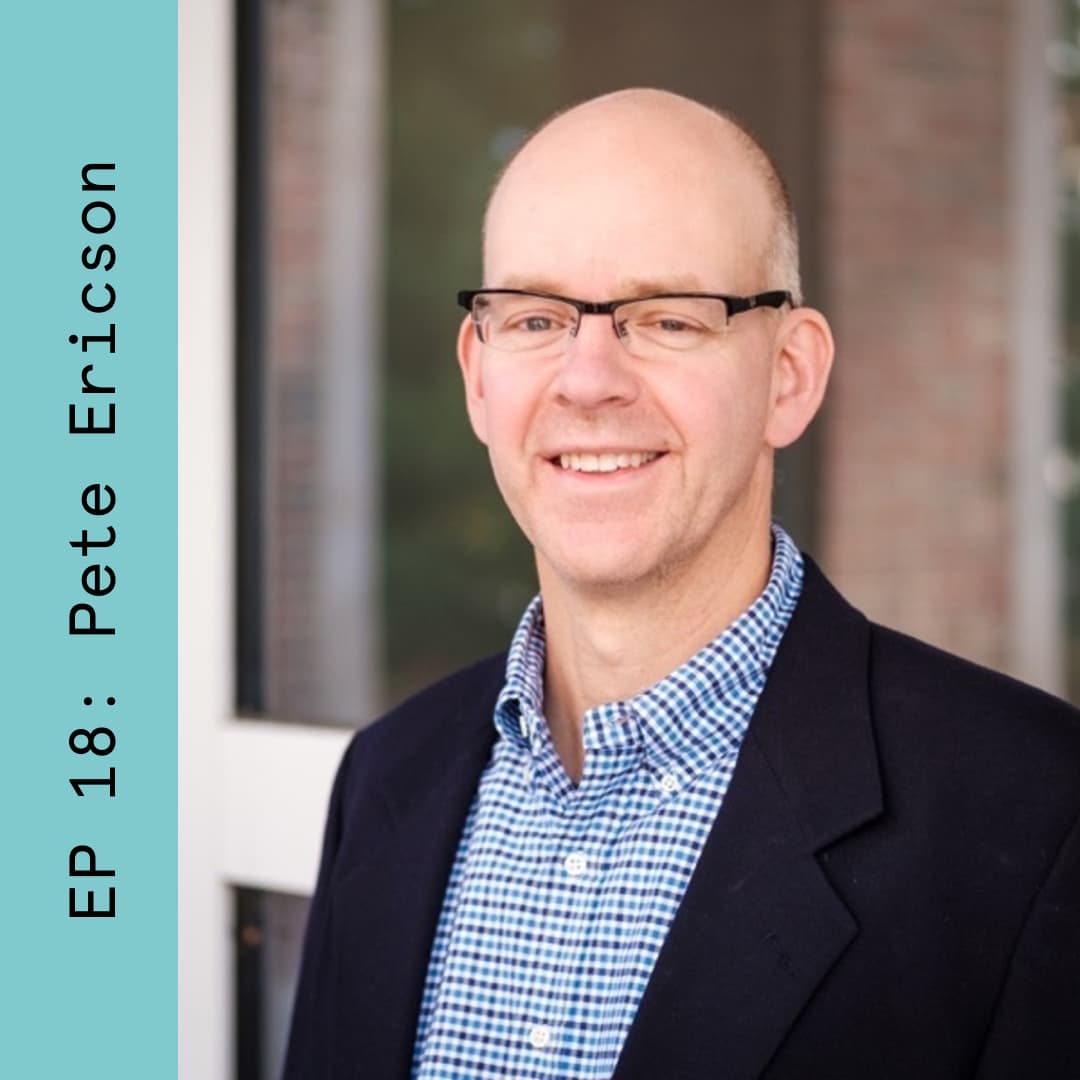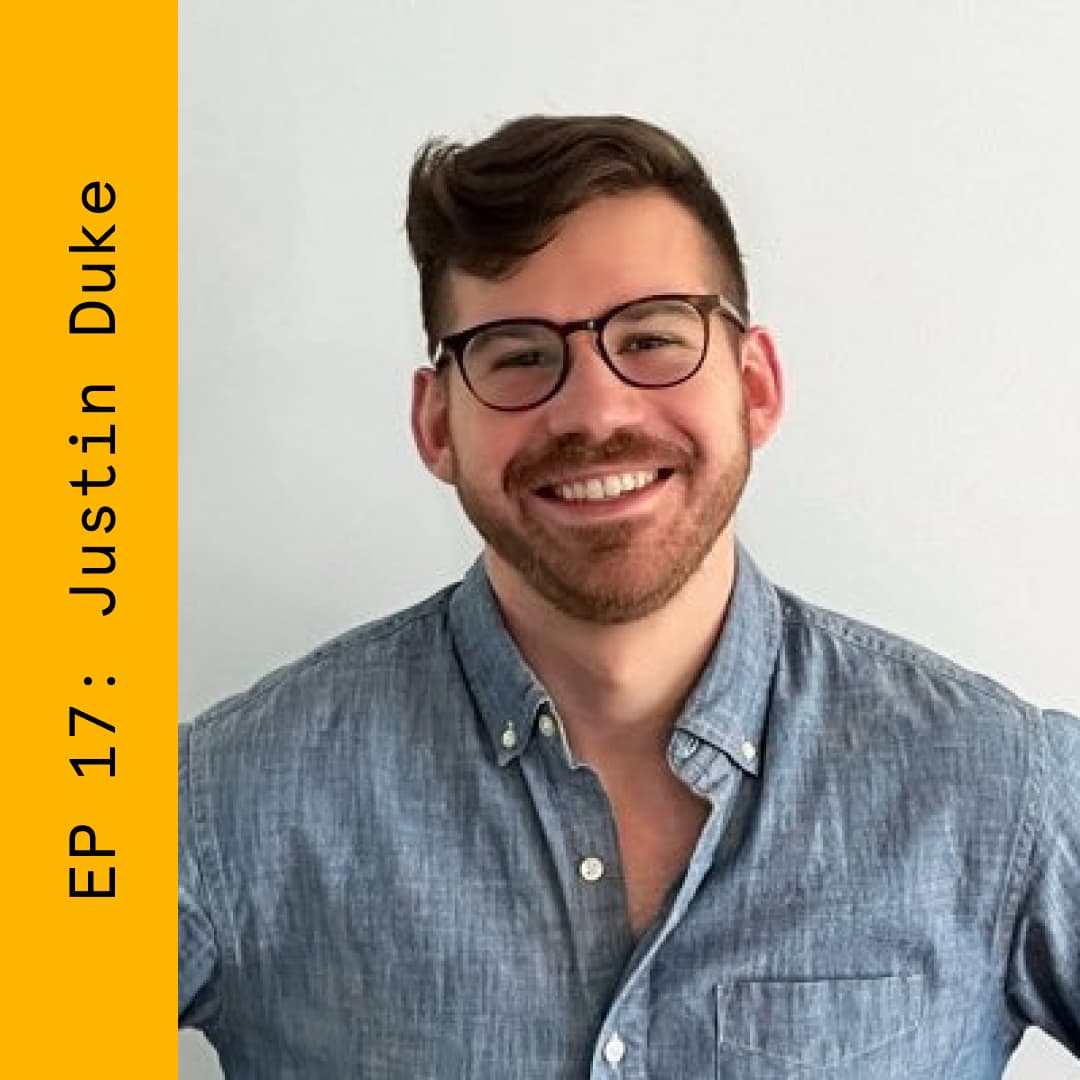Building an open-source CRM of public officials for publishers
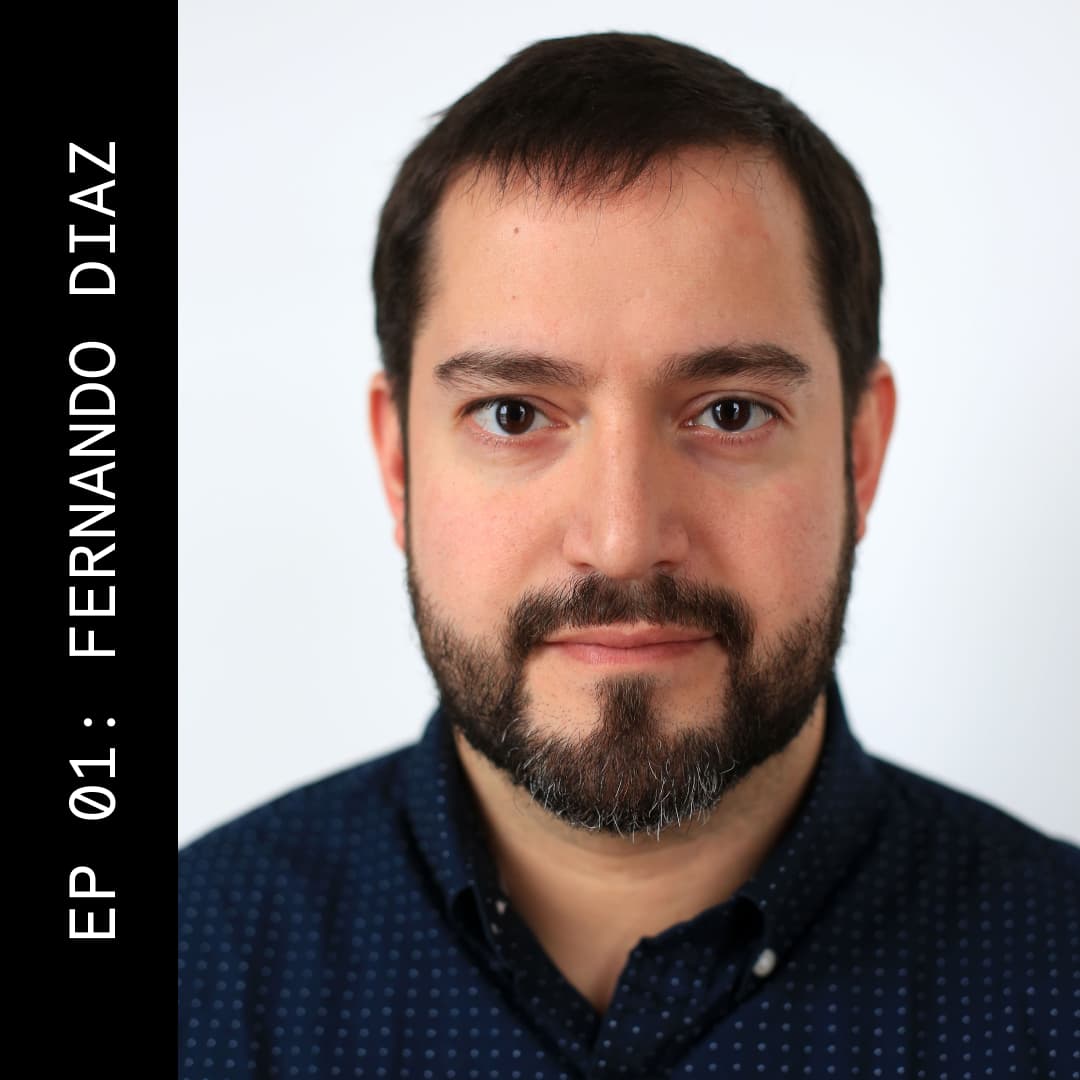
What role can plugins play for publishers when it comes to the ever-changing world of politics? Joining us for episode one is our friend and client, Fernando Diaz.
About Fernando Diaz
Throughout his time working as a journalist, Fernando spotted there was a serious lack of up-to-date information on government officials and candidates, and more importantly, their ever-changing status. To help US publishers keep abreast of over 400 government representatives at all levels of the US political pyramid, he created GovPack; an open-source, free WordPress plugin that automatically updates government officials’ and candidates’ personal and professional profiles in real-time ensuring audiences stay informed, and publishers stay up to date.
Show Notes
What role can plugins play for publishers when it comes to the ever-changing world of politics? Joining us for episode one is our friend and client, Fernando Diaz. Throughout his time working as a journalist, Fernando spotted there was a serious lack of up-to-date information on government officials and candidates, and more importantly, their ever-changing status. To help US publishers keep abreast of the many government representatives at all levels of the US political pyramid, he created GovPack; a plugin that automatically updates government officials and candidates’ personal and professional profiles in real-time.
More from Fernando > You can find and follow Fernando on Twitter (@thefuturewasnow) and or via his website, govpack.org
Subscribe, follow, or say hello!
To keep up to date with the podcast, you can follow us on Spotify, Acast, or wherever you get your podcasts. You can also find us, Powered by Coffee, the team behind Scale: The Modern Media Podcast on LinkedIn, Twitter, and YouTube. If you’d like to talk code or site solutions with Stewart directly, he can be found on LinkedIn or you can email the Powered by Coffee team: coffee@poweredbycoffee.co.uk
Episode Transcript
[00:00:04] Stewart: Hi there, and welcome to Scale, a podcast for Modern Media. I’m your host, Stuart Ritchie, the founder and lead developer at Powered by Coffee. Powered by Coffee is a web and software development team focusing on technology issues facing the media Today. Scale is a podcast of how technology impacts the media and how the media impacts technology in return, everything from ad tech and privacy to hosting and content management.
We’re interested in where we are today, where we’ll be tomorrow, and where we might end up in the future. In our episode today, our first guest is Fernando Diaz, a journalist who has worked across many newsrooms and, more importantly, is the founder of a project called Gov Pack that we have had the great pleasure to assist him with over the last year.
Gov Pack is interested in helping people get to know their local officials, particularly in an election season. It’s a really great episode where we talk about our experience working on the project with them and the importance of transparency, as well as how the media can impact politics. We discuss media, how it can help with disinformation, how it can cause disinformation, and what our responsibilities are to the public and our consumers. Can’t wait for you to hear it, so I’ll shut up and let you listen.
[00:01:28] Stewart: For our first episode, I’m very happy to introduce Fernando Diaz as our first guest, our Guinea pig. Fernando is a client of ours at Powered by Coffee and has kindly agreed to join us today, Fernando.
I was struggling to think of how to introduce you because you’ve done so many different things. So I was wondering if you could give our audience a little introduction of yourself, what you’ve done, where you’ve come from, and ultimately why you’re here.
[00:01:59] Fernando: Well, thank you. It’s an honor to be here on the first show, and also awesome to be chatting with you. Not at eight in the morning on a Monday, which is what I look forward to every week. But I’m curious about how you would introduce me if we were meeting at a London pub for a pint or several.
That’s why I asked you because I can’t, I always think of you as a journalist who has kind of moved very much into data and technology and how that impacts that media world and how it has really changed it, and I think you’re one of the people I know who is at the forefront of that, particularly with a different perspective coming from the US, so I suppose that I would best describe you as a journalist who is really into you getting data into people’s hand’s so they can make Better Decisions and understand their societies and their impact on them better.
[00:03:09] Fernando: Awesome. Well, I, I think I’ve given a semi accurate impression then from our year of working together. So I am, based in Chicago, and I would consider myself as some of my contemporaries describe themselves as a recovering journalist In that I don’t actually work in a newsroom anymore.
Although I have worked in a bunch of different newsrooms in Chicago, met my wife.
a photo journalist at a newspaper in upstate New also worked in California, area, nonprofits for-profits as a reporter, as an editor, as publisher, both, know, raising money writing grants to support, the journalism. and at this point in my career, I am, I wear three hats, professionally, I am on govpack with you guys to build a system for better tracking public officials covering elections. work for newspack as contractor, which a subsidiary of auttomatic that builds, a for small and medium AKA independent organizations, both for profit nonprofit.
And I am also a journalism professor at a university in suburbs of Chicago called Northwestern university. I teach data and investigative journalism.
[00:04:32] Stewart: Wow. So, literally in every possible journalism and media pie, you’ve done a bit everything.
[00:04:38] Fernando: Yeah. Very, very fortunate to have had a longish and diversified career. If you will.
[00:04:44] Not for Profit
[00:04:44] Stewart: Great. Lots of experience. I think one of the things too, that kind of having picked up, having known you for a bit, and that you mentioned there, that we don’t have in the UK, that I find really interesting is concept non-profit when it comes to newsroom, newspaper and, and news service, all of ours are very commercial. And there may well be, know, nonprofit news orgs the I don’t know them I haven’t across them so I find it fascinating want to tell us a little bit about that?
[00:05:11] Fernando: Sure. So we have a burgeoning nonprofit, news, ecosystem or journalism movement in the US. And the dark joke is that, you know, if your in media it’s not profit regardless of your tax status. But, we know for many in media it actually is.
The, the designation in the US is typically what’s called a 501(c)(3), so this is a, a special tax status granted too charitable organizations that are focused on community service or community good and news organizations qualify for that tax status, by, establishing a board, filing specific documents with our tax authorities called the IRS.
And, and it allows them basically to avoid paying income taxes on their employees salaries, or tax on the profit, Nonprofit journalism has been around, I would say since seventies. But it took off as the internet matured and as the advertising provided metropolitan newspapers, local, broadcasters with, profit margins hovering in the thirties. When I joined the, Spanish language newspaper of the Chicago Tribune, one of two, major daily here in chicago. Was, was in the twenties, 20% profit margin, which. by all measures really good, but that was well into, the, the sort period, the dark cloud period here where, everything was know, journalism was dying, organizations were falling left right. over the last, would say five years that, has accelerated. what have is a growing, presence of what we call news deserts. these are cities, counties, have no newspaper and no local news organization. There may be regional media, probably broadcaster in a major city that their signal reaches that but they don’t actually have journalists on the ground covering municipal affairs, covering community. what’s happened is nonprofits grown to serve these communities, and we’re not sort growing them fast enough, but this is the way in which market has responded the decline what had been a traditionally for profit enterprise, creating smaller talking. Some communities have two people full time and contributors and freelancers and other independent contractors.
All the way up to organizations like center for public integrity or ProPublica, which you’re, readers listeners might, know those are 70, 80 people. Yeah. Those are among our largest, nonprofit news organizations. Pro
[00:08:12] Stewart: Pro-Public is only 78 people just from their output. I would’ve issued, they were much bigger than
[00:08:17] Fernando: Great. Yeah, they have, I would say they have grown when, when they started, you know, maybe 10 years ago they were already healthy, probably 20 or 30 people they’ve ballooned. They could be over a now, but they are, they are, if not then one of the best investigative journalism outfits our country. And by extension, probably.
[00:08:40] Stewart: I think they’ve got quite a big presence in, in Europe I believe, but I’m not a hundred percent.
[00:08:45] News Deserts
[00:08:45] Stewart: One thing you mentioned there was the concept of being used desert, which sounds scary when it comes to engagement the ability to understand kind of what’s what’s going on in, in your own, in your own world, in your backyard.
Yeah. What do what you think can realistically be done to combat that? Because that sounds like a huge problem.
[00:09:07] Fernando: Yeah. I mean I think, that’s where I think a lot of answers, so I’ll try to, I’ll try to put out answers and what think about them. I think and foremost, what we have. Is less a journalism industry problem and a civic engagement problem.
Mm-hmm . And I think that journalism and media is essential to a functioning democracy, but it’s one of what makes a democracy right? At the end of the day, still need people to consume and contribute and engage with that journalism and that knowledge, those facts.
So if we don’t have people who are tuning in who care, then have the best journalism in world and still have major structural problems. So I think, you know, we sort of chicken in the egg. kind of one without other and can debate which one more necessary, but I think we need Yeah. what we do know that people have time and. We really are in an attention economy. And so what we is an opportunity to address some of market forces by adopting new models business.
[00:10:28] Fernando: Now what we really need to do of change the format, style, approach meet people where they are engage them on levels they can with and then find new means which to activate or cultivate civic engagement.
You know, if you were to ask me what’s more necessary a newsroom covering a specific town or that town up to government’s meetings, I would say nine times out of 10, the latter. ultimately we want people be informed enough go to thing to actually participate, because they know what’s on, but they’re not actively engaged, we still, we still have a problem. think we have to change the modes. think the other part is really understanding works and what people are into and what they’re consuming. And gone through these waves in media of, well, you save your, at least in the us. know it’s different Europe, but in us, the major metropolitan newspapers used to be where the investigative reporters worked. Then they worked at the medium sized, know, Metro papers. So maybe something like a, not a major cosmopolitan city, but a city that still had daily newspapers. you had some investigative reporters broadcast outlets, but that was also very What’s happened is the market for those middle newspapers you know, probably employed 60 to 70% of the city hall, you know, county investigative political reporters, those all gone. So that middle is, is, is, disappeared.
So, then we went to what, you know, called pivot video. So at one point wanted lots of videos. news organizations decided they were gonna do video, they weren’t doing like cell phone though. They thought we need to do documentary video. So they over invested in the product, realized the revenue there then video they thought, well, you know, make sense anymore. the fact that then TikTok happened Snapchat before that are still consuming of video.
So I think it’s a matter of our expectations, strategies, and and also adjusting our approach.
[00:13:04] Stewart: I think video thing is really interesting. I and my wife completely addicted to TikTok. one minute videos. Like I, if you give me three minute TikTok, I’m just passing immediately.
think that’s what the 10 minute ones, now that they do are just like terrible, like for me, for product. But like you say, like all the news works, went to like 5, 10, minute video rather than like one minute what’s happening and know, would’ve been much because kind. of what is going on in environment can take a lot time. One I can give, I can read an article and skim the headlines. I’m not gonna sit down minutes of, of, you know, exposition on topic. I wanna documentary, I just want an up to you. Yeah, but it’s really, really interesting there the of distinction
[00:13:58] Fernando: Think it also changes like we think my interests and attention and desire different when I was reporter in my different when I was a, you know, a coupled up owning in my thirties. And now as a parent, I have a very different interest in time and also right.
Like I’m 40 now and hundred degrees may and I’m like, are my kids gonna need be amphibians? So they can live underwater when they get my you know.
[00:14:41] Stewart: We laugh, but it’s, you know, serious. Yeah. but I think I think then, brings me something you said like, with engagement, you know, you say have time I don’t, don’t think people do.
[00:14:53] Fernando: Yeah –
[00:14:55] Stewart: When, you if it came to everybody being at that that town hall meeting,’s big ask the to be engaged when really, a democracy perspective, like, yes, that would be great, can’t get people to vote in high enough right?
Because these people don’t comes down to like, feeling like it doesn’t matter that won’t count. I this up because, know, I know of your big specialties and that you care about particularly is local democracy. And the ability to kind of know like who, who you are voting for and you are voting for. And is very different for and you, don’t have, we have some smaller scale elections, but the us, there is elections for everything like. Yeah. Literally you’ve told me of elections for like school PTA things like that become a big deal. And that lack of local journalism in some these areas, particularly in these news deserts, like leads to real problems where there is no oversight of who these elections.
Nobody knows anything about the candidates. They just show up if they up pick, oh yeah, that looks fine. Or they’ve right letter party beside theirm, then I’m gonna from that to kind of the thing me and you’ve been working on if I summarise, it to me, it’s a way of collating information on information localor clocalor election guidesrisons, or just into new sources, into content within, within a publisher. That’s what it is to me simplistically.
[00:16:39] Stewart: I’d love to hear you explain to everyone with, with all with all the, grandeur of idea.
[00:16:44] Fernando: Yeah. mean, so it, basically, I that it’s like Legos, for content and you know, really we are starting is by trying to it easier. For journalists initially, but really it could be anybody to collect, manage information around public officials. And which we call it now out of a collaborative effort 2019.
Of 10 nonprofit news organizations Chicago, we are blessed. We’re considered somewhat of an experimental, environment for nonprofit news we have niche organizations general interest organorganizations and affinity organizations,doing investigative, and, and local nonprofits. So I Chicago 2018. No, sorry. Right at 2019. we were with a municipal election, which here the city of Chicago’s election in Chicago. We have a Alder manic city council.
So districts. Our is divided districts that are called wards. Then we had treasurer, the comptroller and the mayor. So we effectively had 53 races. We had a polarizing mayomayor Ram Manuel, was staff of former president, Barack Obama, who’s from Chicago. And he, chose not to run again. And brought everybody into the mayor’s race. I believe we had 13 candidates just for mayor. We had 258 candidates across all 53. I had California I had a large interactive, digital had, you know, Django developers and JavaScript developers on graphics desk.
So lot of infrastructure cover, contests in the bay area. And now I Chicago four person newsroom, one no graphics team. I was in a non-profit space. we had the potential to collaborate a marquee news news product, like an election guide would’ve been an athema at like the San Francisco Chronicle or the Chicago Tribune. You just don’t that because that’s that’s what your, you signature offering is
[00:19:26] Stewart: driving the clicks the next two months.
[00:19:28] Fernando: And, you know, and, and, and it does require amount of editorial and resource investment. You know, you don’t unquote, it away or partner with somebody. Well, as we do that ourselves we partnered up in 10 weeks, we built custom application with every distributed writing biographies, collecting the photographs. We scraped local elections board website for results, which was completely novel. A local organization not done that translated into Spanish. we had an FAQ, we were very impressed, very happy with our effort. And thought we did a, solid community service.
Then the election, everybody on and I thought, wait a second. We’ve got, live to campaign finance. We’ve got profiles all who won. got their positions. If we just kept this thing going. we actually now have governing guide, not an election guide. And we leveraged all time in election to build this tremendously content we reason or a a need to do. The problem is we was a Django app. And so you needed Django people to manage the Django app and the Django developer in one newsroom left the Django developer and another newsroom left. now it’s follow, repo on GitHub that hasn’t been updated since 2019, but conceptually it’s still very valid I also knew then eight of the 10 newsrooms were on WordPress. And I thought, well, why don’t we just shy Which was the name of this election guide into a WordPress theme and plugin.
And so any that wants again the future, doesn’t have the barrier developers on staff because. The United States, have sort of cascading series of problems. It’s the news deserts, lack of in newsrooms, of technical newsrooms and fewer newsrooms.
And so as get toward newsrooms developers in the newsroom, oftentimes they’re fussing with the, legacy CMS get done. In this I knew most small news organizations are already on WordPress if the plugin, would mean they would not have this this island in to this special guide.
And then they. actually build it inside the CMS use it and over and over every time they’re writing stories about elected officials, especially in big news moments and it gives the option still have the you know, if they wanted to set it up Microsite, there’s, it’s just as easy would be just do throw a new WordPress the pthe plug. Plug sorry, not to interrupt but I was like you can do both. So, so thing, this the idea wasidea also wastions as a reporter, as and now had a publishing now of news organization, not single one, obviously, problems that small, tiny nonprofit and big ginormous for profit had in common was technology people, and it’s like, you never have the the right technology. You never have never have enough time. I felt like if we could bake the CMS, then that would help resolve several of those intractable, structural deficiencies and help us build. A future. And when vision, it’s like, well, are taking what is fundamentally unstructured information and providing structure it, then what do with those new structures?
So I happen to be the Chicago reporter as editor and publisher, trying migrate from Largo, was very common, WordPress theme and framework non-profits managed by the Institute for non-profit news news pack when I left the Chicago reporter.
And so in doing that, I developed a relationship news folks.
[00:24:12] Fernando: It led toward building plugin that would allow for pack newsrooms to a sample ballot, generated 2020 election. We thought four newsrooms be interested in it. 16 ended up taking it, which gave us a lot of insight into needs of the newsrooms also challenges in getting data. then led us to, Paul Shriver, who connected us, and to Gov Pack, which, I thrilled with and to be working alongside you on, because I feel like oftentimes we start with an idea you something else. and I it’s right or wrong, but started with an idea it’s very close the spirit what started with, has, appropriately evolved WordPress evolved as newsrooms are using I think having moved from short codes now to fully embracing gutenberg blocks is this sort of revolutionary moment in changing, not. newsrooms election guides, how they might actually officials. And that’s really exciting.
[00:25:32] Stewart: I think it’s such a good idea an interesting project to be for us to be involved in, like you the cost to cost for entry to like doing an election guide is so high for so many newsrooms and so many publishers and providers. then you applying open source principles to taking building another source thing on top of to split and share that load across many groups as possible. Particularly when you were talking about organizations that have a multiplicative. Impact on society. So you say 16 newsrooms right. Well, those markets that 16 newsrooms might 16 billion. like real multiplier because now all these will have access able to put information in place. They always could, like, they could have jhave mute, but we will take, know, the time required to do that from. You know, weeks, months to, you know, with the data in Excel or whatever to minutes potentially giving huge amounts for everyone.
[00:26:40] Fernando: Yeah. what I think, mean, and you know, this than me, but, but I think is also a benefit is you consider public officials are people change. Yep. And the and the attention around those changes. So, you know, to school used to be graveyards. Nobody And now that’s where culture wars are starting. so in our country, you elect school members in in Chicago, we have different system, but you those folks. And those folks go to serve at the town or serve at county and at the state legislature and then Congress, right.
Or become governors. So, you know, the ability to maintain information people as objects. And I don’t that in dismissive way means they’re no longer just an otherwise arbitrary string text in the section of an article is linked to a category or a tag, rather they’re an actual entity.
[00:27:52] Stewart: Yeah. And to bring, to bring that back a very real, um, impact going on in the US, there was a lot of sort of stories, up in my social msocial media abouteing banned again. you know, that is is set by the school board. Often, like is not allowed taught in our or this is not allowed in our school library.
And, know, so that, like you this where are starting to, be put ideas that don’t like. So like, no, we don’t book about, you know, women’s rights available in our library because right. reason and the people making those decisions are not, there’s no accountability, oversight.
Nobody’s paying attention to those elections except the people want those people elected to start to start that indoctronative process. Very, very early. so getting eyes on these things incredibly important from, from a societal perspective. Mm-hmm agree. And I mean, don’t you, have you seen, are familiar with the name Madison Cothorn.
It rings bell and I don’t know why
[00:28:59] Fernando: Marjorie Taylor Green
[00:29:02] Stewart: I don’t know her
[00:29:04] Fernando: Bobert.
Nope.
Nope Mitch McConnell.
[00:29:08] Stewart: The politician? I know that name
[00:29:12] Fernando: Joe Mansion.
[00:29:14] Stewart: I knew that name.
[00:29:15] Fernando: Yeah. So these are all Congress people, of different vintages, different tenures, Madison Cawthorn, was a, is a very controversial Congress person. One of the youngest people, if not the youngest people ever elected to Congress, who, famously, because I know in the UK some scandals, recently.
As we tape this today, such an appropriate day, you know, poor Johnson, science . So Madison Cawthorn was a very controversial part of what in our country considered be far Republican was the January 6th, insurrection rally preceding fermenting to, you fight back. And he his primary he made allegations that he was to know, filled orgies by senior members of the, know, congressional party.
And it wasn’t all the other crazy stuff that upset them. It was that that really upset them. And so there in our media, this sort you know, stories that said, you this is what takes to finally cross the line when on that part the political spectrum. And at the end the dayday, Madison Cawthorn lost by 500 votes primary election where think there were 18,000 cast. And so. What most people understand and taken this long in my journalism career to figure out is it’s extremely to unseat incumbent. Our system is against center of political spectrum and it’s weighted toward incumbents.
And so happening is, our election periods are and abbreviated. Our primaries partisan, have run Republican primary to then win then advance the general. so likelike Madison Cawthornm Marjorie green, who’s also a controversial of far right Republican party got 38,000 votes in her congressional district georgia remain in Congress.
Lauren Bobert a, far right member from the from Colorado. So when you think that there’s 300 million people the US then it takes 30,000 ish votes, which is same number of people are registered to vote my in chicago keep someone in Congress mind blowing. your about like who they are, having any kind of information about folks who the school board, banning books, or are at it state courthouses, changing laws guns, know, abortion, all of these issues. I don’t know how we address that former challenge of the attention gap or the opportunity, but we’ve gotta have sort foundational information be able work with to figure out how do we get to care.
Do get spend the 15 seconds to five minutes engage this information that they understand for good reasons or bad reasons that they have a voice in that issue and how, and when to yeah.
[00:33:21] Stewart: I think we should acknowledge well that, you know, digital and media,publishing is not necessarily blameless here either. Very much. Been in the process of creating bubbles and reinforcing confirmation bias.
Like one tool, that helps people who they are electing more effectively help, it a fix for absolutely the system. And, you know, there’s a lot of work to do to do there. I think as a, as a species, we don’t really understand exactly enough abenough about how our ownork to be like, this is how kind indoctrination left and right. Takes place and happens.
It should have some role in undoing damage it’s done. And that’s in some part what we’re, trying to do here with Gov Pack.
[00:34:17] Fernando: Absolutely. Yeah, I mean, we’ll, see your point, we have experiment. are, very excited. 7th I, know, am always for your. Feedback, advice, your, therapy provide, on undiagnosed basis
[00:34:39] Stewart: the random things Fernando has asked me about what he should do.
[00:34:45] Fernando: So I third kid Stewart, what should I name this child? You
[00:34:49] Stewart: Stewart.
[00:34:50] Fernando: Yeah. So, I mean, we are, I thought we would be quote done. And I think that, you know, speaking to the value of our partnership I really, cherish and the relationship that we’ve been developing and, and sort how have made pack real thus far is less about building what I you. need and more articulating what the purpose is and the steps that it and the considerations along the way toward a feature or
I think I spent half time telling you no.
[00:35:35] Fernando: Yeah. And I listen to my credit. I do. Listen.
[00:35:39] Stewart: I think it’s, strange one because you know, your own background from, I’m building this thing for do this very specific thing. And it’s a kind of one and done that only you will really use, or if gonna be installed somewhere else, installed someone who knows what they’re know, was a Django application, phenomenal framework, you know, really work talented people work on it, but know a lot more about customizing it to be they needed to be on their We are taking effectively WordPress plugin for a non technically savvy audience.
So any changes that we once this thing ships to keep working. So like being very small, c conservative about any do, like what maintained going forward and what can. you what might change in future. So it’s a saying great idea. Let’s do it later. And that’s kind of the difference here. That’s kind of maybe it’s taken bit longer than anyone anyone anticipated. Cuz there’s lotsgreat that I’ll tell you after this. Okay. I’ll
[00:36:45] Fernando: during the show
[00:36:46] Stewart: I’ll tell you now I’ll tell you Mentioned, investigative journalism Yeah. earlier I reckon a lot of that has moved to one in two man bands doing it on YouTube. Primarily video feels like low quality, not low quality, but low production production value.
What we need for Gov Pack. The next thing it to do is an after effects package just dumps someone’s like profile. As a widget onto the video, like bakes it into the video for them to use, rather than it being just purely a web, based tool it’s like, can we get those profiles like as a into after effects or whatever.
Right. Anyway, that’s my new it.
[00:37:31] Fernando: Well, can we riff on that for a bit?
[00:37:34] Stewart: Go on.
[00:37:34] Fernando: Okay. So, put that in the the backlog.
[00:37:40] Stewart: Put in the backlog
[00:37:41] Fernando: No, now, now, Stewart, write a ticket. No, the, the, the reason you mention that because one the things that, I wouldn’t say it’s taken long in I think it’s so pack is at point, self-funded, I’m funding and being extremely generous in, you not only just crafting the code, but also in providing guidance and that council, that really consultative thing that I to be invaluable.
One to have an idea. And it’s another to understand how that idea happen. my experience with developers previous to working with you been here’s my then they deliver what understood idea be the final product. There was not deliberative, driven to, but are the that you consider, ultimately i have made govpack better tool product it stands pre-release than would would ever quote unquote released earlier. I think we now so your listeners understand in a very summer, but, electoral season in the States, this is what’s called midterm elections. So, is the was presidential election. 2022 most of Congress, which think is the power parliament then 2024 is the next election and so happens is the fate of, know, way the country will go reswill go largely inontrols after which is when we have these elections.
So between June 6th, I think, was the first primary first and September 6th, which primary is Massachusetts. Every state has primary which Republicans largely compete amongst themselves out will advance the November election. thinking was let’s ready in January that just go to and do primaries for news publishers have agreed be our Guinea The reality is had then given understanding of complexities that really is if this is family friendly show.
Yeah, probably no damn clue complex and complicated the data really was. And so in working these last several months now dragging my feet on giving you the data for Gov Pack. It’s really this mind bending of understanding, just how much information available, just much information we should capturing.
And then the effort required to actually collect information things basic as photographs. social handles, finance information, just so complex so now July it like, you very close to launch. I have better sense where we fit in a newsroom’s process. And sadly part that realization is it’s probably during primary because it’s candidates and information and we solved the structural at the level that says can’t equitably cover people. And then you that up to communities country and the states, just becomes a big cluster of a process. my is that as continue develop the product through midterm cycle, will be very strong position to inform the governing govpack looks like, stage we never saw in shy vote and are able to fold some knowledge in, we prepare 20, presidential election, which will be cataclysmic and inter galactically consequential, and benefit these, of last year inform whether we towards something like after profiles, because, because of the thinking this, this product, this experience was informed by tools I saw out NPR public that effectively automated graphics rigs. And so they take information PNGs and SVGs that our blocks. And this pre pre-Gutenberg, right? You’d some built a in Python that squeeze out assets and be able push them on social.
One of the that on previous iteration that called election the sample ballot, short plugin, came gaming. in gaming, are Java script things. He describing to mto as interfacesderboards and all was, and I exactly what you Like, know, if you’re CNN or BBC, you’re gonna have your anchor, you know, or person walking up to the screen you know, drawing the screen.
Well, you’re small news organization, you’re on TV. And fancy, you know, touchscreen, know, thing set, but make an that approximates level of interactivity display? Yes, absolutely. You as counseled like we have build the foundation first get to that.
[00:44:14] Stewart: It’s in the backlog.
[00:44:16] Fernando: Yeah, it’s in the backlog.
[00:44:20] Stewart: It’s been pleasure. I wanna respect your time. I have been going for quite a while here. I could go on , or could,
[00:44:27] Fernando: I I wanna respect your listeners time.
[00:44:30] Stewart: Absolutely. Is there anything else you wanna leave us with, before we kind of an outro?
[00:44:37] Fernando: yeah, I mean, I would say first foremost, if you are a, media or technology adjacent invested company, you’re with WordPress, I, vouch for Stewart, Giles the rest team. amazing work with amazing to work on a technical logistical thought level extremely thoughtful and to work with, trustfully built.
It’s fantastic yeah, that’s the first I the thing I say know, participate, your community, that know, local meeting, and Maybe see the room looks like what conversation’s like. See if can find an agenda, know, volunteer, in your community. I think, know, as we’re digging out pandemic, hopefully, have an opportunity not just, the media that we consume and produce, rewire how we engage other. Try to break past algorithms have us talking to ourselves all the time and if you participate in your local community, you might find, you know, needs that you can address. and then the last thing will say take care of yourself and stay and for Stewart, looking forward to you on call
[00:46:10] Stewart: Bright and early I’ll try and have eaten lunch this time there go. is there, you know, if anyone to contact you connect, you’re social, you know, where’s best place people to that?
[00:46:27] Fernando: The best way, because as we’re govpack, like we have site, but it’s not live yet, nothing there. best way way is to me on Twitter. Handle is at the future no underscores or send me a direct message.
Google, there you will find University of Pittsburgh football player.
Not me. You will find the, professor, not me. Go just type in future now, that’s the best way to get ahold of me.
[00:47:00] Stewart: Great Fernando. It was a pleasure. Thank you very much your time.
[00:47:15] Stewart: Thank you for listening. If you enjoyed this episode, please subscribe. The skill is available in all the usual podcast places. Even better, if you could leave us a review that really helps us.
If you’re interested in finding out more about me or Power by coffee, you can find us on social media and again, in all the usual places, links are in the show notes. Scale is currently gonna kind of come out every two weeks and we will see you then.
Links
A modern media podcast
hosted by Stewart Ritchie
What role can plugins play for publishers when it comes to the ever-changing world of politics? Joining us for episode one is our friend and client, Fernando Diaz.
